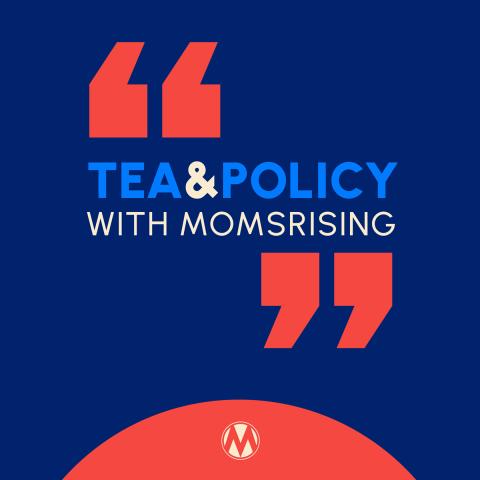
Tea & Policy with MomsRising
Summer Survival: The Truth About Child Care We All Need to Hear
It’s summer time! The kids are out of school, and everyone’s frantically scrambling to find child care (fingers crossed), summer camps (thoughts & prayers, y’all), or just winging it (sending big hugs). Before all the summer madness, we took a deep dive into a topic that’s absolutely vital for all of us: child care. Luckily, for this episode of Tea & Policy with MomsRising, we were joined by the ever brilliant Julie Kashen, Director for Women’s Economic Justice (and true champion for working families), a senior fellow at The Century Foundation.
A big question that often comes up is: Why should I care about child care if I don’t have young kids? Like the clean air and water we depend on, and the public schools and libraries for our communities - child care isn’t just a personal issue; it’s a public one. It affects every single one of us, and it’s beyond time we all start paying attention.
In my conversation with Julie, we tackled the big stuff: why child care is essential, how to get everyone on board with seeing it as a public good, the differences between the Child Tax Credit and child care, and how we undervalue parents who handle the child care duties.
Child care is the backbone of our lives and a cornerstone of a more equitable society. When we invest in child care, we’re investing in gender and racial justice, the mental and physical health of caregivers (especially mothers who bear the brunt of the mental load), the development of our youngest children, and the overall economy. But here’s the kicker: there’s this ridiculous narrative out there that if you can’t figure out child care for your family, it’s somehow your fault. That’s nonsense. It’s an attempt to isolate us so we don’t question the systems failing to meet our needs.
“Child care is a near-universal struggle, and it’s a failure of public policy, not personal shortcomings. It intersects with economic prosperity, workforce participation, educational equity, and social welfare. Child care is a public good.”
Click the link above to watch the full conversation to learn about ways we can and need to change this narrative. As Julie will explain, “we need to share stories and data that highlight how child care impacts all facets of society. Then, we must advocate for policies that reflect this reality.” We need affordable, accessible, and high-quality child care for all families. It’s time to see child care for what it truly is: a critical piece of our social infrastructure.
Here are some resources to get you started:


The views and opinions expressed in this post are those of the author(s) and do not necessarily reflect those of MomsRising.org.
MomsRising.org strongly encourages our readers to post comments in response to blog posts. We value diversity of opinions and perspectives. Our goals for this space are to be educational, thought-provoking, and respectful. So we actively moderate comments and we reserve the right to edit or remove comments that undermine these goals. Thanks!